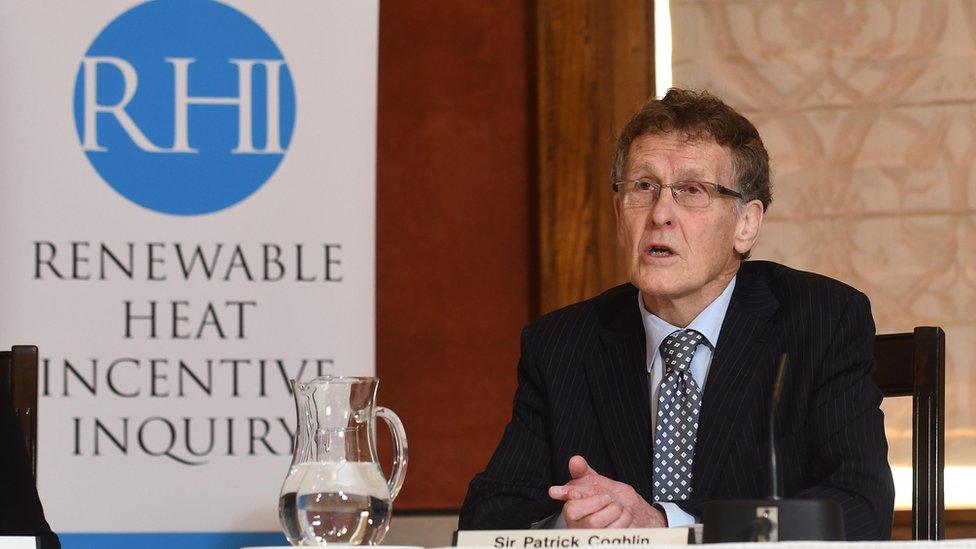RHI inquiry delayed; Foster to have 'enhanced rights'
- Published
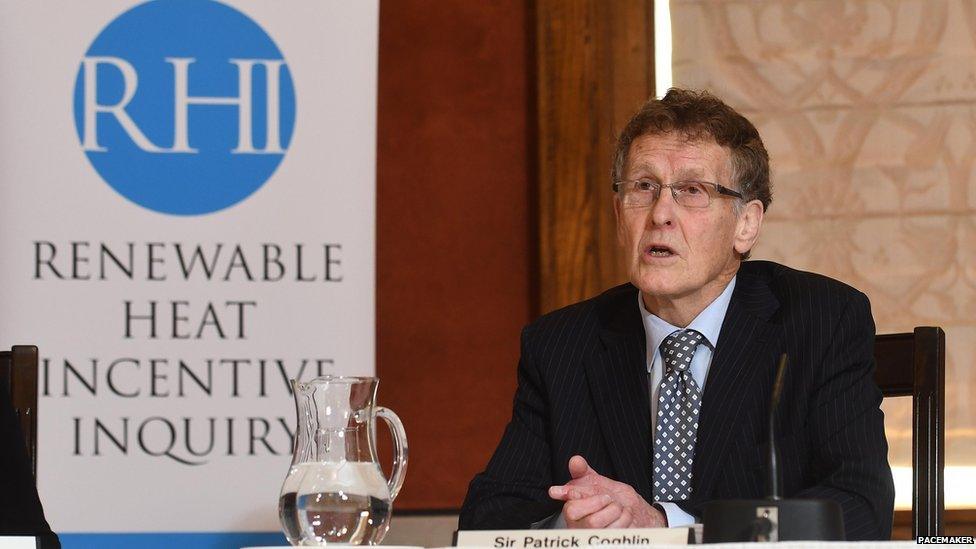
Retired judge Sir Patrick Coghlin is chairing the inquiry into the failed heating scheme
The start of a public inquiry into a failed green energy scheme has been delayed.
Hearings into the Renewable Heat Incentive (RHI) scheme, chaired by Sir Patrick Coghlin, had been scheduled to start in October, but will now begin on 7 November.
DUP leader and former first minister Arlene Foster has been given special rights at the inquiry.
The "enhanced participatory rights" mean she can access witness statements.
The RHI scheme was an attempt by the Northern Ireland Executive to help to increase consumption of heat from renewable sources.
But flaws in setting the scheme's subsidy rate left it open to abuse as claimants could earn more cash the more fuel they burned, with the projected overspend at one stage estimated to be as high as £490m.
Former DUP minister Jonathan Bell has also been given enhanced status.
During their time in office, Mrs Foster and Mr Bell were in charge at the former Department of Enterprise, Trade and Investment which oversaw the design and implementation of the scheme.
The chairman may also decide that the former ministers can be legally represented at the hearings.
They are among 23 individuals, or organisations afforded the special status.
The list includes Cambridge Economic Policy Associates, the consultants who advised on the design of the scheme, as well as a range of civil servants, and a number of special advisers who were involved with RHI-related decisions.
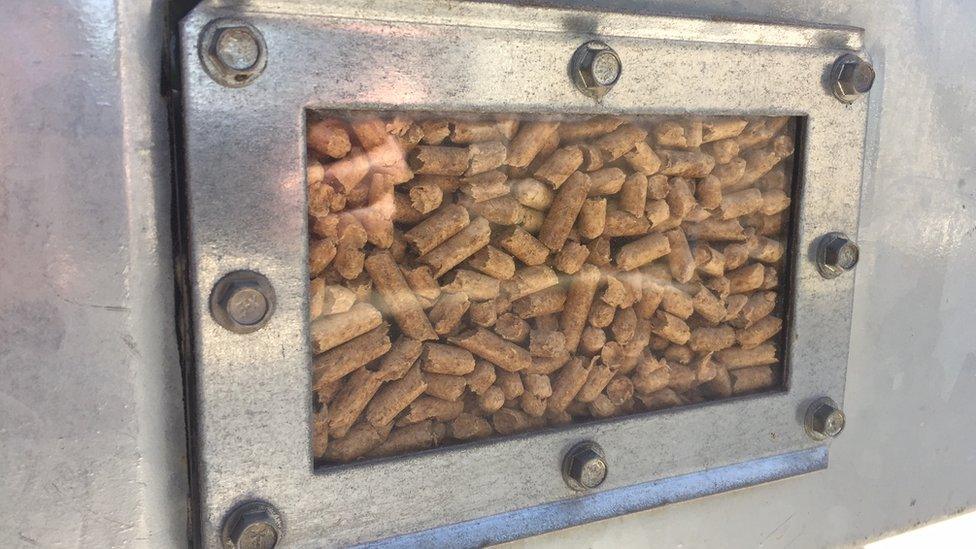
Wood pellets are the fuel for biomass boilers that were installed through the RHI scheme
The inquiry chairman has also rejected the applications of eight civil servants for what is known as "core participant status".
The designation would have afforded them more extensive rights before the inquiry. Instead, they have been offered "enhanced participatory rights".
Sir Patrick also said he had decided that redaction of some documents would be necessary.
He said this would extend to information the inquiry believed to be commercially sensitive, or which would frustrate investigations into allegations of fraud, misconduct or abuse of the RHI scheme.
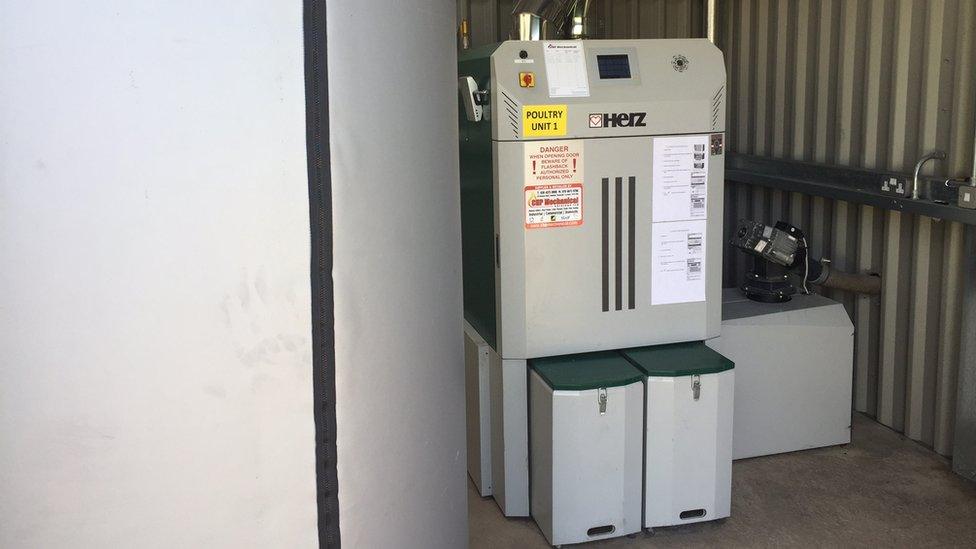
The RHI scheme was set up to encourage users to switch to biomass heating systems
Three organisations have been given "core" status at the inquiry.
They are the Department for the Economy, the Department of Finance, and Ofgem - the regulator which effectively ran the scheme.
- Published15 August 2017
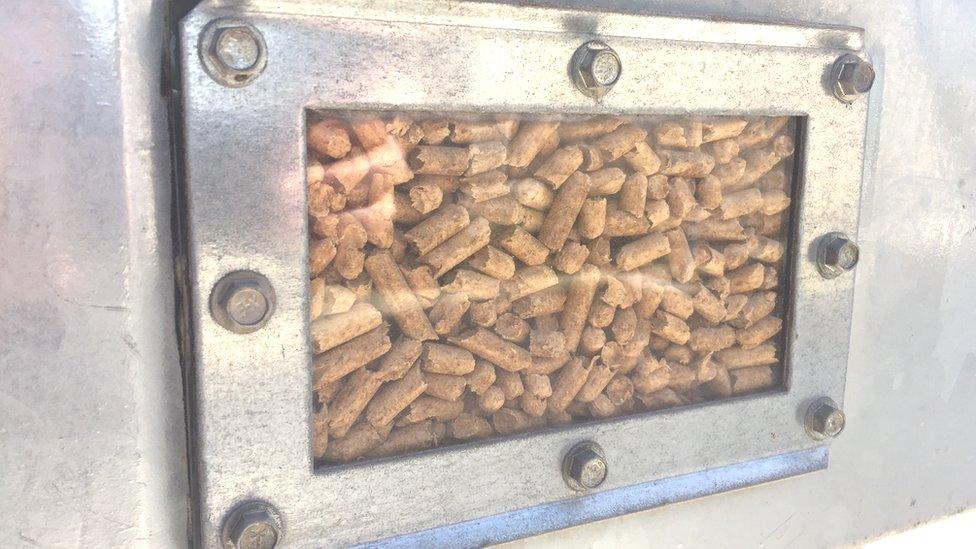
- Published24 May 2017

- Published7 November 2017

- Published23 October 2019

- Published17 January 2017
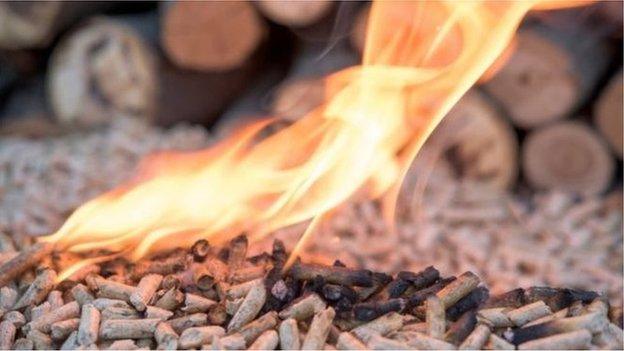
- Published27 April 2017
